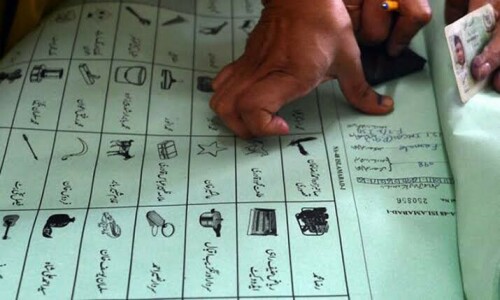ISLAMABAD: While a set of five private bills is expected to be laid before the National Assembly on Tuesday next including legislation to increase the number of judges in the top judiciary, Chief Justice of Pakistan (CJP) Qazi Faez Isa has convened a meeting of the Judicial Commission of Pakistan (JCP) on Sept 13 to deliberate upon the proposed JCP Rules 2024.
The JPC will consider elevation of judges in the superior judiciary and discussion on the matter may continue until next day if the agenda was not exhausted on Sept 13.
The meeting will also be attended by SC’s senior puisne judge Justice Syed Mansoor Ali Shah, Justice Munib Akhtar, Justice Yahya Afridi, Justice Amin-ud-Din Khan, former SC judge Justice Manzoor Ahmed Malik, Law Minister Azam Nazeer Tarar, Attorney General for Pakistan (AGP) Mansoor Usman Awan and Pakistan Bar Council (PBC) representative Akhtar Hussain.
The last JCP meeting was held on May 3, but it remained inconclusive as the law minister informed the commission of the federal government’s intention to introduce constitutional amendments to alter the current process for elevating superior court judges.
The rule-making committee’s recommendations suggest that the JCP’s chairperson (CJP) forward three names for each Supreme Court vacancy and convene a JCP meeting for deliberation no later than 15 days before the vacancy occurs.
Similarly, for the appointment of chief justices of high courts, the chairperson will convene a meeting to consider the five most senior judges of the high court concerned at least a month before the vacancy occurs.
For high court judge appointments, the chairperson will solicit nominations from the relevant selection committee no later than 60 days before the vacancy and convene a commission meeting for deliberations no later than 30 days prior to the vacancy.
A private member bill, sponsored by PML-N’s Danyal Chaudhry, is being introduced in the National Assembly to amend the Supreme Court (Number of Judges) Act 1997, aiming to increase the SC strength from 17 to 22 judges.
Article 176 of the Constitution empowers the president to determine the strength of the Supreme Court, allowing for flexibility in setting the number of judges.
Tracing the history of how the present strength of the SC judges was determined, senior counsel Muhammad Akram Sheikh, while talking to Dawn, recalled that the government of Nawaz Sharif had reduced the strength from 17 to 12 in 1997.
As the then president of the Supreme Court Bar Association (SCBA) in 1997, Akram Sheikh had challenged the government’s decision in the Supreme Court. As a result, then AGP Chaudhry Muhammad Farooq (late) was compelled to make a statement before the Supreme Court, announcing that the government was withdrawing the legislation and reverting to the original strength of 17 judges.
Akram Sheikh was of the opinion that a strong and independent judiciary is essential for a stable democracy, warning that any attempt to increase the statutory strength of judges will be seen as an effort to pack the apex court, potentially aimed at undoing the July 12 judgement in the reserved seat case.
He argued that the proposed legislative exercise to increase the judges of the top court by making its strength flexible undermines the independence of the judiciary, which will compromise its ability to enforce court orders, particularly in the context of the July 12 verdict.
Globally, the strength of judges is not increased in response to heavy pendency of cases, as it can be addressed through greater efficiency and appropriate constitution of benches, the counsel noted, adding that the CJP always has the power to invoke the induction of ad hoc judges, who are not involved in hearing political cases but are appointed to help dispose of cases.
Meanwhile, an informed source said the SC had requested the chief justices of the five high courts to identify potential candidates for appointment as additional judges in their respective courts. The aim is to fill at least five vacancies in each high court as soon as possible.
Published in Dawn, August 29th, 2024












































Dear visitor, the comments section is undergoing an overhaul and will return soon.